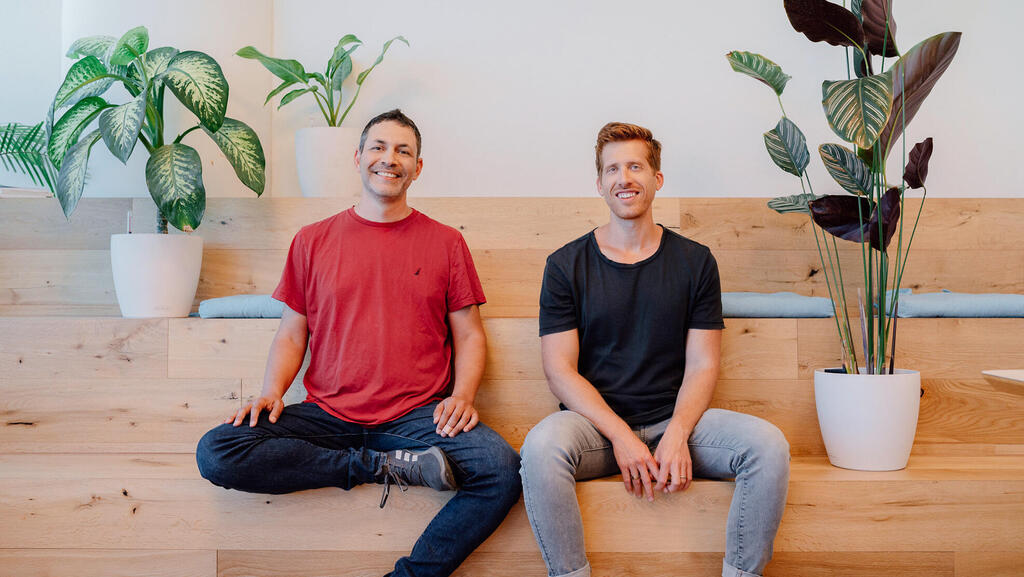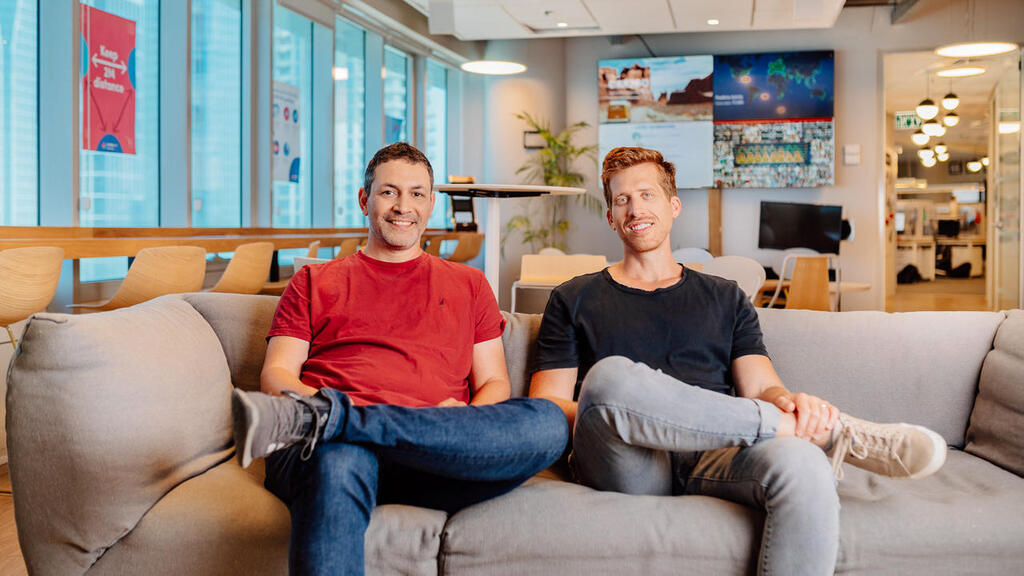
Opinion
Monday takeaway: "The future of the Startup Nation is in our hands"
As Israel celebrates 75 years of independence, monday.com co-founders Eran Zinman and Roy Mann share their vision for the country
When we submitted our IPO for monday.com in June 2021, it marked the end of an 11-year journey, from a startup to a public company. Yet, for us, it felt like just the beginning. The days of Israeli startups moving their headquarters to New York, or bringing in American CEOs looking towards an acquisition at the first opportunity, were behind us. We understood that Israeli companies have no limit, and we had progressed to a point where companies could be founded, grown, and succeed in Israel with Israeli leadership.
In the current environment, where the sense of security in both our democracy and an independent judicial system is eroding, Israeli high-tech is experiencing a huge upheaval. The success of the high-tech industry in Israel is dependent on the environment that fosters it, an environment which offers shared social infrastructures. Many of these infrastructures are currently under threat and there are those who believe this may lead to the demise of the high-tech industry as we know it. But we believe that if we can mend the connections in Israeli society which we have neglected for years, if we can have difficult conversations and unite our people, then there is a chance that we can come out on the other side with a solid foundation for the success of high-tech, and the State of Israel in general.
First and foremost: We are an Israeli company
When we founded monday.com eleven years ago, our core focus was survival, much like any other startup. Among the first crucial decisions we had to make was the decision of where to register the company. The majority of consultants we met suggested establishing the company in the US in order to avoid a long list of problems such as the distrust of large American customers in foreign companies, the ease of raising capital from American investors, tax challenges, and a list of other potential conflicts we might meet along the way.
Despite this guidance, we decided, like other companies at the time, to register the company in Israel. We also filled our senior management with Israelis because we felt that the time had come for more companies to be established in Israel, to grow and be managed from here, and not sold to foreign companies.
Israelis are good at technology. But there is far more to us than that
The Israeli high-tech industry was originally built on the extensive knowledge and technological ability available in the country. But with these strengths came the perception that "Israelis are only good at development". This reputation lingered until several Israeli companies managed to break through the barrier and create globally recognized products and brands.
Then came the next assumption — that "Israelis are not good at managing and building a big company." Investors harbored a real fear when it came to building large companies in Israel due to a shortage of experienced managers, the distance from the market, and the very limited number of Israeli companies who has been successful in the past.
As we grew, we understood that we have an opportunity to impact the evolution of Israeli companies, and that any progress we make will exponentially influence those who come after us. Just as other companies had paved the way for us, it was now our responsibility to pave the way for future Israeli companies.
When we decided to go public, we discovered that despite a number of public offerings of Israeli companies abroad, there was no source of information that could help us learn from the successes or failures of others. Standing beside us were Wix, Fiverr, and many others, who openly shared their tips and learnings about the IPO process and what to expect in the years to follow. Today we can say that their advice and support was incredibly significant in the success of our IPO. In the last five years, out of a desire to help, we created a podcast-turned-community, Startup for Startup, that is open to everyone in which we share all of our insights, from the establishment of monday.com, to the IPO, and beyond.
Thanks to the many successful companies that have sprung up here over the years, Israel has made a name for itself as a high-tech pioneer and a real appreciation has formed, both for Israeli entrepreneurs and the companies built here. A new generation of companies established in Israel wish to grow here, and are more than willing to face the challenges and difficulties along the way. We believe it is only a matter of time until the next "Google" or "Microsoft" arises in Israel.
After years of looking ahead, high-tech is now going backwards
However, the situation as it stands is this: increasingly, new companies are registering as American, and those that have already registered as Israeli are considering a “relocation” process. These potentially lost corporate profits tax could have been a meaningful source of tax revenue to the state. But now, the vision of building giant Israeli companies, whose profits would advance the country’s tax revenues, is being significantly reduced.
We understand the survival mentality that comes with building a startup from nothing — not receiving a salary in order to grow your company, trying desperately to establish trust and legitimacy among investors, and doing everything in your power to decrease risks. Failure to do so could mean your venture will not receive financing and will ultimately be shut down.
Related articles:
While the risks associated with being an Israeli startup have decreased significantly, in the last three months they have reared their ugly head once more. We have always felt that Israel has a strong foothold in the tech industry, but now it is becoming clear that, when the trust in social structures and democratic foundations is threatened, the stability of everything built on top of it is undermined.
Ask “What’s the problem you are trying to solve?”
We hope that the damage caused can be repaired, that the desire that unites us all will overcome our differences of opinion, that we will learn to truly listen, and that we will not only be able to say that we want unity in the nation, but that we will be ready to fight for it.
The statements from both sides reflect pain and a deep desire to be heard. Yet each side primarily perceives judgment and rejection of the other. If we can hear beyond the rhetoric of judgment and demands, if we can listen to what the other side truly feels and hear their pain, then we can find a bridge in the form of different solutions than those currently placed before us.
As we write these lines about communication, we seem to have strayed from the subject of high-tech, but this is exactly how we run our company. One of the common phrases you will hear in the corridors of monday.com is: "You are describing a solution, but what is the problem you are trying to solve?". When faced with a problem, our instinct as humans is to seek a solution right away, without taking the time to fully comprehend the issue at hand and consider its potential impact on others. This approach can lead to incomplete solutions that fail to take different perspectives into account, and can even be conceived as judgmental or uncaring by those affected.
Instead, we need to learn how to communicate our problems without immediately proposing a solution. This helps create a space for others to share perspectives and collaborate on a solution, an approach that fosters dialogue and understanding rather than division and mutual harm.
Shared success
At monday.com, we strive for joint success, where a "victory" of one over the other is a loss for all. A similar aspiration exists in Israeli society, albeit on a different scale.
Our hope for changing the current situation begins with all of us learning this lesson together and knowing how to create a different discourse than what we experience in politics, in the media, and in social networks. Non-violent and non-judgmental discourse, discourse that enables genuine listening to the problems and wishes of others without automatically jumping to find a solution or making judgments towards the other
We welcome initiatives such as "achim anachnu" and "Q4 Israel" that encourage direct communication between people. We hope that as time goes by, more and more Israelis will engage in conversations and discover who is on the other side so that we can create real change from the grassroots. At monday.com, we set ourselves the goal of supporting initiatives for dialog and encouraging people from all ends of the spectrum to speak truthfully. We feel a responsibility to take an active part in rebuilding the shared social infrastructures that will serve as an alternative to the destructive discourse that pervades various media outlets.
Despite everything, it's in our hands
Israeli high-tech is a miracle, with many documenting the incredible realities created here.
The ratio of startups per capita is among the highest in the world, the investment in startups per capita is three times that of the USA, there are huge capital investments that in the last two years alone have been over 40 billion dollars, and for the first time, employment in the industry has exceeded the 10% mark and reached about 400,000.
We have a deep love and belief in the State of Israel, and we see monday.com as an inseparable part of it. Without that unique Israeli culture and the infrastructure offered by this country for building the high-tech industry, the Startup Nation would not have prospered.
The success story of the Israel’ high-tech sector, like other extraordinary achievements, is a testimony of our tremendous ability to accomplish together. We hope that we have the ability to shift to a different discourse that will lead to real change. At the end of the day, it is all in our hands.
Happy Independence Day!
Israeli entrepreneurs Eran Zinman & Roy Mann are co-founders of monday.com
